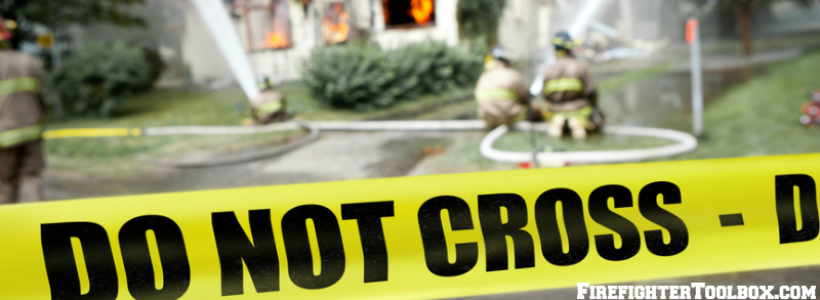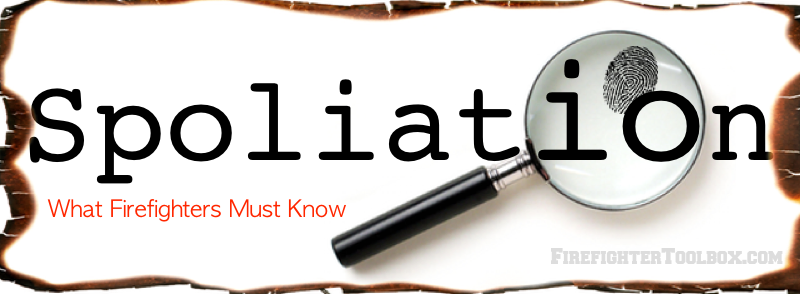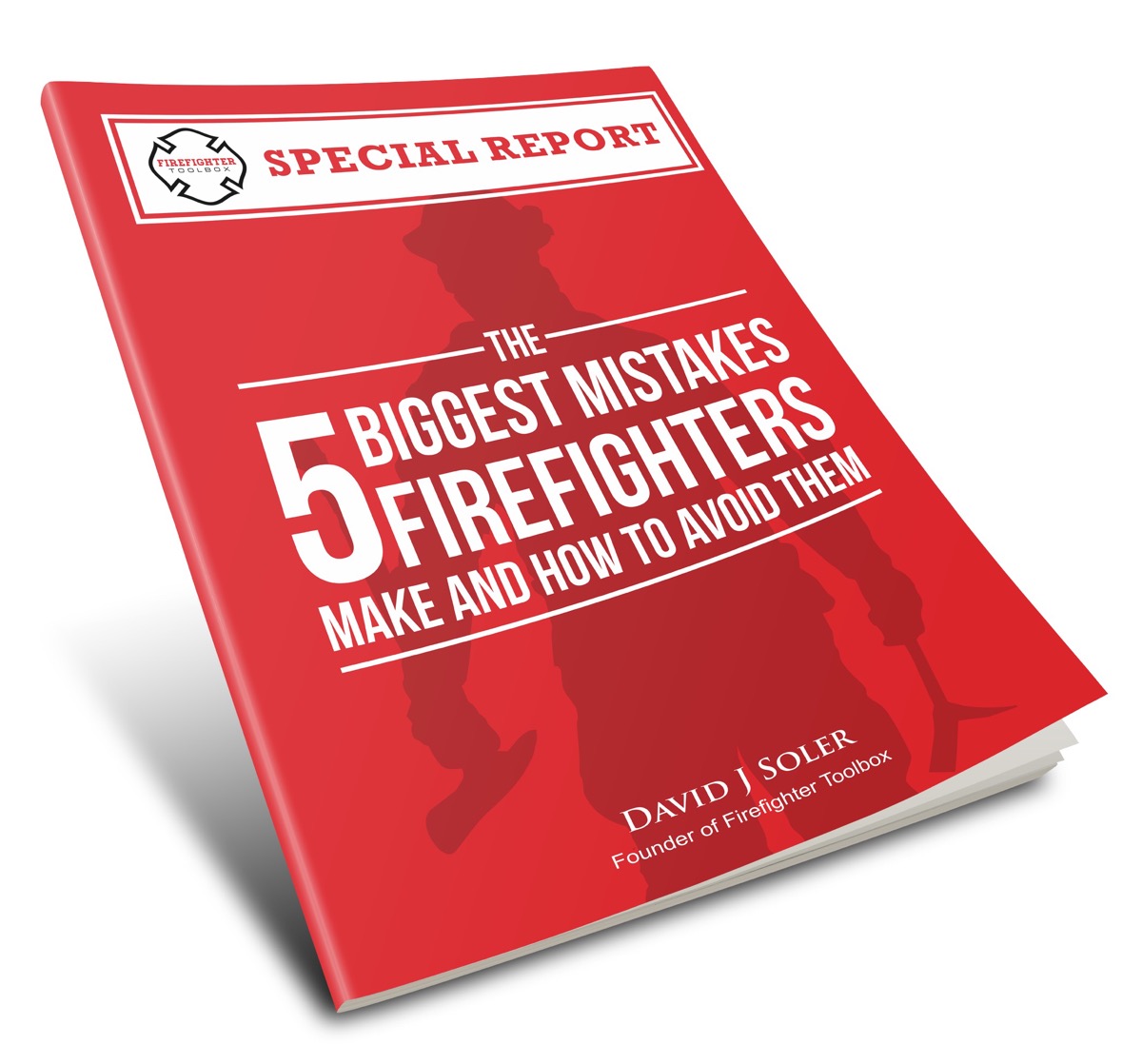3 Musts for Firefighters to Know about Spoliation
The term “spoliation” is defined by the NFPA as the loss, destruction, or material altercation of an object or document that is evidence or potential evidence in a legal proceeding by one who has the responsibility for its preservation. Simply put, spoliation is the damage of evidence by those who should care about protecting it. Finding the true cause of fires is sometimes an arduous task. Anything in and around the scene maybe considered evidence, making fire investigations especially vulnerable to spoliation.
Here’s what you and your crew need to know about spoliation:
1. How Spoliation Affects Us
The destructive nature of fires and what we do to extinguish them destroys evidence. The actions we take during the course of our duties is expected and does not normally constitute spoliation in the legal arena. We may be protected from civil suits by governmental immunity provided we are acting within the course and scope of our duties. In our litigious society, however, we should never assume we are completely protected. We should exercise care to preserve any scene and evidence meticulously.
2. The Consequences of Spoliation
The affect of spoliation not only threatens the outcome of a criminal case; the public has a vested interest in it as well. Fire losses suffered by the public often follow with litigation. In the event that evidence is mishandled, the success of an investigation and even prosecution is threatened and civil spoliation claims against our Department and us may follow. We should consider the need for a separate fire investigation by insurance companies. They routinely seek compensation for loss suffered by the insured due to a “defective product”, aka “subrogation”. Insurance companies stand to suffer major loss if our efforts to avoid spoliation is not up to par.
3. How to Avoid Spoliation
Once the fire is extinguished and the immediate danger to life and health is eliminated, control of the scene to preserve evidence is a top priority. Excessive overhaul with hand tools and water can destroy physical evidence and further complicate the investigation. Use electric power tools in lieu of gas powered to avoid contamination. Tasks such as discarding furniture and contents from the second floor window should be delayed until the scene has been examined and documented by the Investigator. Electrical appliances should be left in place whenever possible to allow both public and private Investigators to rule them out as the cause of the fire. Consideration should be given to anything in the area of origin that an insurance Investigator may be interested in taking a closer look at. If contents must be removed to prevent a rekindle, keep them together and make an effort to protect them from the elements. Work with the property owner and police to ensure the building is secured properly so that any evidence still inside is preserved as you left it.
The spoiling of evidence has unquestionable impact on the investigation of fires. A truth discovered by a fire investigation may lead to the prosecution of an arsonist, but when spoliation occurs, truth becomes its first victim.







great basic info….keep it coming. I can only wish I could get my teammates to take the time to study and perform these actions
Inv. WJ Lacks
Thanks Walter! There are a lot of innocent things we (firefighters) do and don’t do that have an affect on an already difficult investigation. As an Investigator, you know how challenging it can be to find evidence and preserve it. Be sure to share the information with your department and maybe they’ll think twice before gutting a room down to the studs! Stay tuned for more and be safe!